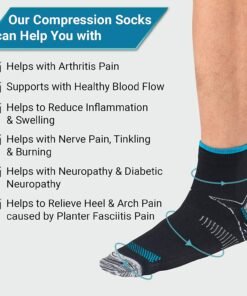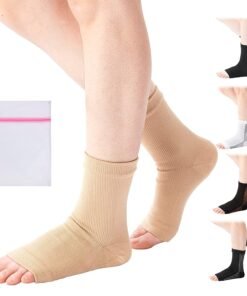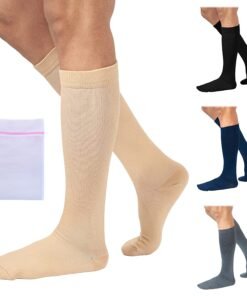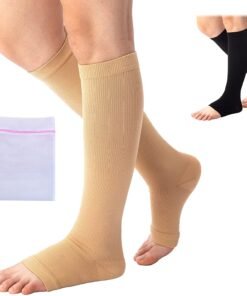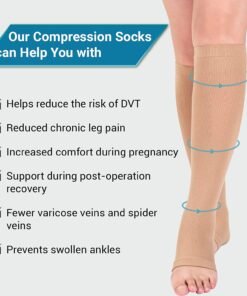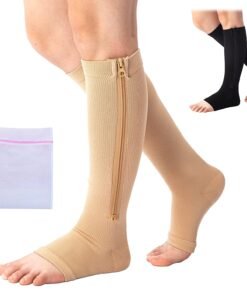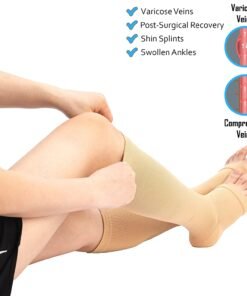As nurses spend long periods of time on their feet, it causes lower leg problems in them. They may also experience other problems, including muscle fatigue, joint stress, and poor circulation problems. Wearing compression socks helps avoid pain and other discomforts in the lower legs. As well as this, these compression socks may also help nurses to prevent the chances of circulation problems.
Compression Socks
360 Relief Compression Ankle Socks for Foot Swelling, Travel, Flight, Heel Spurs, Pregnancy
Compression Socks
360 Relief Cooper Infused Compression Socks for Men, Women, Running, Pregnancy, Varicose Veins
Compression Socks
360 Relief Cooper Infused Open Toe Compression Ankle Socks for Foot Swelling and Tendonitis
Compression Socks
360 Relief Copper Compression Socks for Plantar Fasciitis, Travel, Sports, Blood circulation
Compression Socks
360 Relief Flight Compression Socks for Travel, Diabetic, Varicose Veins, Pregnancy, Nurses
Compression Socks
360 Relief Open Toe Medical Compression Socks for Nurses, Varicose Veins, Flight & Pregnancy
Compression Socks
360 Relief Zipper Open Toe Compression Socks for Pregnancy, Swollen Legs,Nurse, Varicose Veins
How do compression socks help nurses?
For nurses, compression socks can be very beneficial and they help them in a variety of ways. For example, compression socks provide lower legs with graduate pressure, improving blood flow and circulation. Thus, it helps reduce swelling and aches in the legs. Compression socks offer pressure to the muscles, reducing the amount of vibration and movements in the leg muscles. Thus, they help reduce muscle soreness and fatigue.
Nurses who spend a long time sitting or standing may be more prone to blood pooling or blood clotting. As compression socks promote healthy blood flow, they help prevent the chances of blood clotting. Consequently, you can also keep your legs safe from venous problems, such as varicose veins or DVT. By improving blood circulation and reducing the chances of muscle fatigue and poor circulation, compression socks help nurses perform well throughout their duty sessions.
What are the common types of compression socks?
Compression socks are of different types – designed to meet specific requirements. We can find knee-high compression socks, thigh-high compression socks, pantyhose compression socks, open-toe compression socks, medical-grade compression socks, and others. All these are designed differently and work accordingly. If you are not sure about choosing the right product, you must consult your healthcare professionals. They will diagnose your problem and recommend the best product accordingly.
How long nurses should wear compression socks?
There is no exact duration or limitation for wearing compression socks. Nurses who want to prevent pain, swelling, and other circulation problems can wear compression socks throughout their duty sessions. However, if you want to wear compression socks to deal with some chronic conditions, you must wear them under the guidance of your GP. Overusing compression socks is prohibited as it can worsen circulation problems and may also cause skin irritations.


